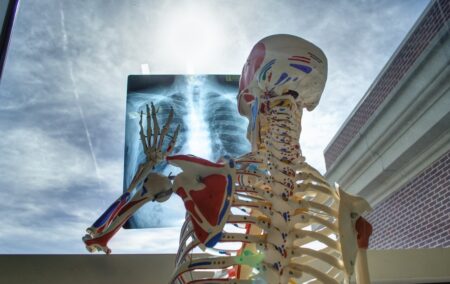The ANC propaganda machine has for many years been churning out messages that healthcare should be “free”. Listen to how sweet that sounds! You do not want sympathetic terms (like care, assistance and healthcare) to mix with cold, unemotional terms (like markets, economy and profit). And who wants to spoil the party by saying that healthcare cannot indeed be free?
On closer investigation this is truly an interesting phenomenon: that people have an emotional perception that certain things should be provided for free, while other things should only be provided at a cost. Of course, with free in the previous sentence I do not refer to things that are truly for free, but rather to things that can be viewed or presented as free. Because, apart from rain, sunshine and khaki bush, nothing is truly for free.
The “free” stuff is not equally free for everyone
Broadly speaking there are two ways of paying for most products or services: directly from your pocket to the producer, or with a little detour – from your pocket to the taxman, and then in turn to the producer. In cases where you pay the producer directly, you normally receive the product yourself, unless you elect to pay on someone else’s behalf. When paying the taxman, hopefully you will receive something in return, unless government decides that you must pay for someone else. This is in fact a clever rhetorical move by government to declare certain goods or services as free. It is like declaring a gravitation-free zone – it simply does not work. A more accurate description would be to say, “free at the point of delivery”, but even this is a selective description of what really happens when the government applies forced redistribution. In the end, someone still has to pay.
An additional aspect is that governments often decide not only to levy taxes for the public delivery of a product or a service, but also to prohibit or restrain the private delivery thereof – as in the case of National Health Insurance (NHI).
That feeling you have about money
But back to the phenomenon. It feels normal that everyone should be paying for certain things, but it feels inhumane to expect that everyone has to pay for certain other things. Only diehard socialists would expect that all food should be bought and distributed exclusively with tax money, while only diehard anarcho-capitalists would expect that all roads should be built and used with private money. The rest of us are quite happy that people buy their food with their own money, but that the town’s roads are built with tax money. I emphasise that this is primarily an emotional perception for most people, and not a discursive economical viewpoint.
Yet, this emotional perception is not a good basis on which to build a country’s economic system. The reason for this is a number of cases where people’s emotional perception indicates that public provision is the best; when the calculations are done, however, it becomes clear that private provision is far more effective.
That feeling you have about healthcare
This is exactly the case with healthcare. There are many emotional arguments about why it would be cruel for people to pay privately for it: What if someone is turned away – and dies – because they cannot afford a life-saving operation? What if doctors exploit patients, because they know that these patients are desperate and know that there is no other way out but to pay for the healthcare service? What if certain remote areas receive no healthcare services because there is not a large enough market for them? This is the kind of issue that makes NHI popular, but which is not subjected to sober economic consideration.
The NHI joke
Most people would readily acknowledge that healthcare has advanced by leaps and bounds over the past 150 years. Yet very few observers keep in mind what systems were required for these advances. Socialists want to prohibit economic freedom so that X-rays will be “free” for all, but conveniently forget that economic freedom was instrumental in the past in inventing the X-ray machine. In turn, the NHI Bill wants to prohibit private hospitals from turning away any patients, but some people conveniently forget that the freedom to turn patients away in the past was necessary to be able to build these hospitals. If a small private hospital is accepting patients throughout the day at minimum compensation, there will not be any savings from which to fund extensions to the hospital. If innovative specialists may never decline appointments, they may never have the opportunity to develop techniques with which to bring new hope for sick people. For every giant leap forward in healthcare – whether a ground-breaking invention or the erection of new infrastructure – there were a few decisions that could easily be labeled as “inhumane” at a different point in time.
To conclude: For healthcare to function effectively in South Africa, there must somewhere be a balance between money and feelings – and NHI is missing that spot.
[Image: by StockSnap from Pixabay]
The views of the writer are not necessarily the views of the Daily Friend or the IRR.
If you like what you have just read, support the Daily Friend.

